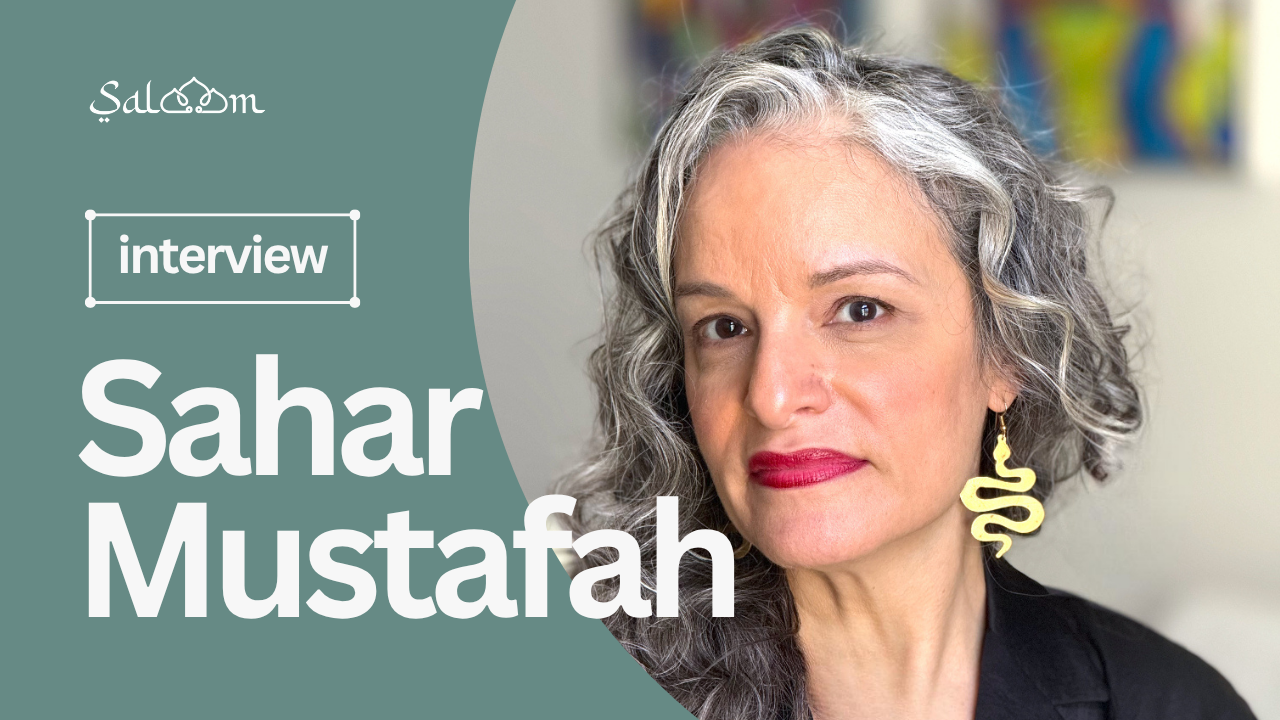
In the landscape of American literature, voices that echo the layered realities of Muslim and Palestinian life remain underrepresented. Sahar Mustafah, author of The Beauty of Your Face, has committed her craft to changing that. Through fiction, she amplifies narratives of faith, trauma, identity, and resilience—offering not just stories, but reflections of lives lived in complexity and courage.
In this intimate interview with Salaam, Mustafah shares how her journey as a writer is shaped by personal history, community, and an unwavering commitment to truth-telling through storytelling.
Sahar’s path to writing began early, sparked by a deep love of reading. Yet it wasn’t until adulthood that she found her literary voice fully awakened.
“Because I was such an avid reader, it was a natural complement to write. I’ve been writing stories as a young girl but didn’t professionally pursue it until after I began teaching.”
A pivotal moment came when she connected with poet Naomi Shihab Nye, who introduced her to a network of Arab American writers.
“This was and still is an invaluable community… who encouraged and uplifted my work. I wanted to write the stories about my lived experiences that were missing from my childhood and most of my young adult life.”
Balancing life as a full-time high school teacher, Mustafah’s writing routine is both rigorous and sacred.
“I carve out time very early in the morning, typically around 4 or 4 30 a.m. I am at my creative best at the start of the day before the responsibilities and obligations of teaching and family call me away from writing.”
She approaches her stories with devotion to craft, aiming to create realistic plots and genuine characters that invite readers into her worlds.
Much of Mustafah’s writing explores trauma, particularly the lived experiences of Muslim Americans confronting violence and alienation.
“I think storytelling is one of the most natural and disarming ways of engaging others on subjects of trauma, especially for those who are outside of our immediate Muslim communities.”
While her narratives are fictional, the emotional truth they carry resonates deeply.
“By the end, I hope there is something universally understood, but most importantly that readers have changed by way of engaging in a largely othered community.”
She has received heartfelt feedback from readers who felt seen for the first time, validating her commitment to authentic representation.
Mustafah’s upbringing on Chicago’s South Side—caught between immigrant life and assimilation pressures—deeply informs her storytelling.
“I grew up on Chicago’s South Side in a neighborhood of immigrant children, though largely still white… My parents enrolled me in Catholic school and I was among only a few brown faces.”
Her experience of being an outsider shaped her understanding of identity, belonging, and heritage.
“There was no acceptance of our ancestral stories… The expectation, if not requirement, was that we become like them, white people.”
For Mustafah, faith isn’t just a thematic choice—it’s the framework through which her characters live and love.
“The thing about faith for me is that it is a universal pursuit… Ultimately, faith for me is connected to our daily lives and in our daily lives are human relationships and choices and consequences.”
Her approach allows both Muslim and non-Muslim readers to engage meaningfully with the spiritual dimensions of her characters’ lives.
“My Muslim readers experience a kind of mirror reflection but not an exact replica as the Muslim experience is quite nuanced and complex. It’s not a monolith.”
As the genocide in Gaza continues, Mustafah sees her writing as part of a larger struggle for representation and justice.
“I hope readers will expand their view of Palestinians and Muslims to a point of normalizing our humanity.”
She is deeply encouraged by the recognition of Palestinian voices in literature and hopes her work empowers the next generation.
“I hope my career is enough evidence to prove our stories matter and that there’s a place to tell it in the publishing industry.”
Looking ahead, Mustafah is exploring the stories of her roots through a novel set in Palestine.
“I lived in the West Bank of Palestine for five years before the first Intifada in 1987… I was inspired by the stories of my mother and mother-in-law who bore witness to the 1967 invasion of Israel.”
She is also open to adapting The Beauty of Your Face for screen—on her terms.
“I’m interested in working with Arab and Muslim creators as well as BIPOC women… I would not want any aspects of the hate crime that is featured in my story to be watered down or omitted.”
Sahar Mustafah’s writing is an act of niyyah—a sincere intention to tell the stories that matter. Rooted in sabr and carried by tawakkul, her work reflects the resilience of Muslim and Palestinian lives, offering both witness and healing.
As the Qur’an reminds us, “Indeed, with hardship [will be] ease” (Surah Ash-Sharh 94:6)—a truth that echoes through every word she writes.
Watch the full interview on YouTube and follow us on Instagram @salaamoneapp.